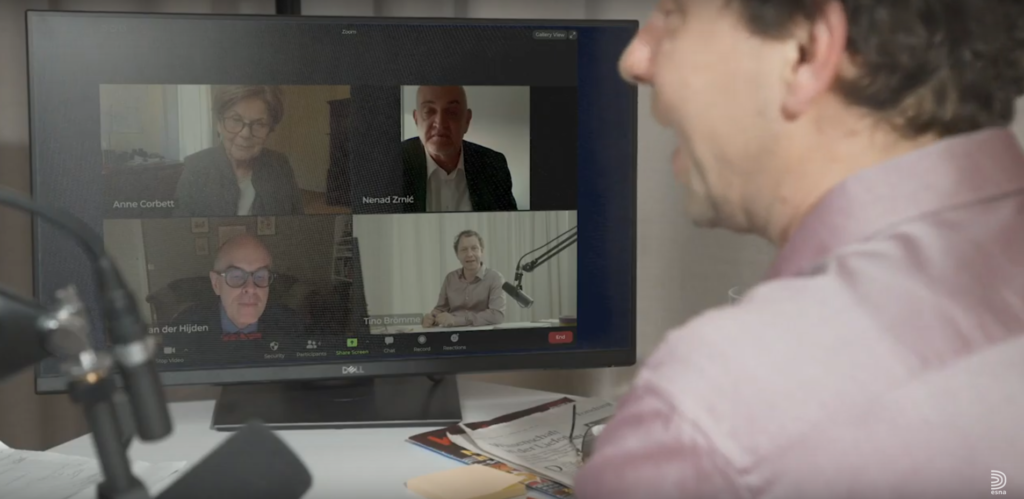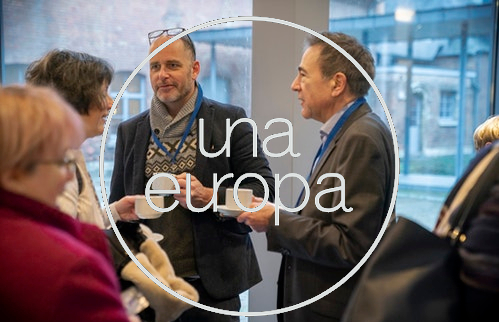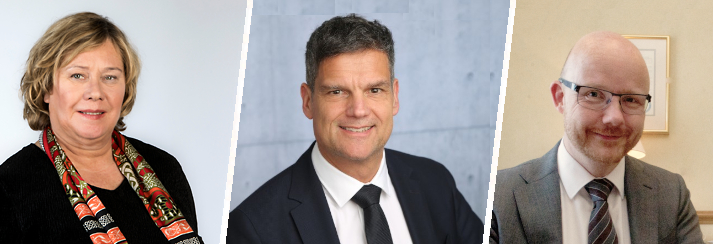Europe, 13 April 2021. Mingling among journalists, authors, strategy advisors, university administrators, researchers, students — to gain deeper insights into higher education policy in Europe. The initiative ‘United Universities of Europe’ has gathered distinguished guests to discuss the current state of European University Alliances, their recent past and imminent future.
This 3rd UUU Panel Debate navigates between past and future. What’s the status quo of European University Alliances? What did they achieve so far? How did Corona and Brexit affect them? What are their current challenges? What will the future look like for them? Will they change the European higher education landscape or disappear?
Journalist Tino Brömme from Berlin, and higher ed strategist Peter van der Hijden from Brussels, discuss it. A special light on the damage inflicted by Brexit on British and Continental universities is being cast by journalist Anne Corbett, Paris, and Nenad Zrnić, vice-rector of the University of Belgrade.
What does the future hold? — Pedro Marques talks about his research on university-society interaction in science-fiction literature, and European students reflect on their utopia of the future university, before Brömme/van der Hijden consider what the upcoming decisions of the European Council mean for European Universities.

Guests:
Anne Corbett is a Senior Associate at LSE Consulting with long-standing experience in the field of higher education and Europe as a researcher, a journalist and a contributor to public policy. She holds a PhD in political science and a BA in History. Her work has appeared in the education press and British dailies. She continues to write for University World News where she recently published A mercantilist approach to higher education post-Brexit. Her books include Universities and the Europe of Knowledge.
Pedro Marques is specialised in regional development, innovation and governance in peripheral regions of the EU. He works at ingenio, a research institute affiliated with the Technical University of Valencia, a member of the European University Alliance ENHANCE. Not only is he a Ramon y Cajal fellow but also a principal investigator in a Innovative Training Network funded by the European Union. He is co-author of the research paper Fiction lagging behind or non-fiction defending the indefensible? University-industry (et al.) interaction in science fiction.
Peter van der Hijden is an independent strategy advisor, helping European University Alliances on the design and further strategic positioning of their proposals. He has worked for the European Commission where his main experience lied in higher education and research: the Erasmus Programme, the modernisation agenda for universities, the European Higher Education Area (Bologna Process) and the European Research Area. His latest article, Mitigating brain drain by connecting universities, discusses a policy report of the European Commission.
Nenad Zrnić is Vice-Rector for International Relations at the University of Belgrade, a member of the European University Alliance Circle U. He is a full professor in the field of material handling and logistics, a corresponding member of the Academy of Engineering Sciences of Serbia. Since 2015 he is a coordinator of one of the working groups for preparing new Serbian Law on a Higher Education.
As part of the 3rd UUU Panel Debate, students of the Una Europa alliance were interviewed about the question: How is your ideal university of the future? They had just participated in Una Europa’s first Student Congress on February 24, 2021. — Their answers showed how aware today’s students are of flexible learning paths, of the world’s ever stronger interconnections and of their own potential to contribute to better learning and teaching environments? The participants are Emily Hartmann (Freie Universität Berlin), Giacomo Zanni (Università di Bologna), Hubert Jakub Bieniek (Uniwersytet Jagielloński), Luca Di Cunto (Università di Bologna), and Weronika Łukasińska (Uniwersytet Jagielloński).
Host:
Tino Brömme, a graduate in communication science and media consultancy, has worked for over 30 years as a journalist, publisher, moderator and event manager across Europe. He was the founder of the multilingual student magazine WORK|OUT, and the news agency ESNA. He publishes articles and multimedia content, mainly on science policy, and is currently preparing a documentary film about Universities in the 21st Century.





